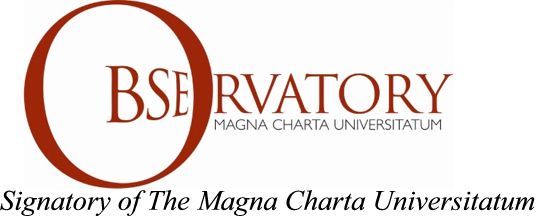Webinar "Antidotes and Antidote Therapy in Poisonings of Dogs and Cats": A Modern Clinical Tool Within the One Health Framework
In the context of rapid environmental changes, the global spread of toxic substances, and the increasing incidence of poisonings among small companion animals, the issue of timely recognition of toxicoses and the application of antidote therapy has become extremely relevant. This topic was the focus of the professional webinar "Antidotes and Antidote Therapy in Poisonings of Dogs and Cats", organized by the Department of Vertebrate Physiology and Pharmacology of the Faculty of Veterinary Medicine at NUBiP of Ukraine for higher education students, scientists, practicing veterinary doctors, and pet owners.

The moderator of the event was Associate Professor Hryhorii Boiko, who ensured a well-structured discussion and professional guidance throughout the webinar.
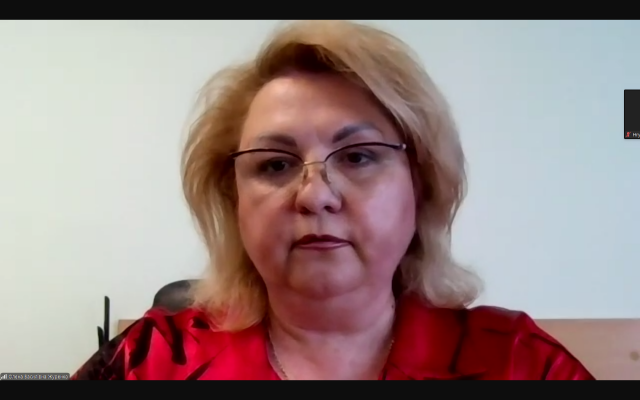
The opening remarks were delivered by Dr. Olena Zhurenko, Head of the Department and Doctor of Veterinary Sciences, who emphasized that modern veterinary education must integrate not only theoretical foundations but also practical skills in providing emergency care for poisonings, which are becoming increasingly common in clinical practice.

The keynote speaker was Professor Volodymyr Dukhnitsky, Doctor of Veterinary Sciences, an experienced lecturer and expert in veterinary toxicology. His presentation focused on the most relevant aspects of using antidotes in the treatment of poisonings in small animals, particularly dogs and cats.
In a clear, scientifically sound format, the following topics were presented:
• Classification of antidotes: physico-chemical, chemical, metabolic, pharmacological, immunological;
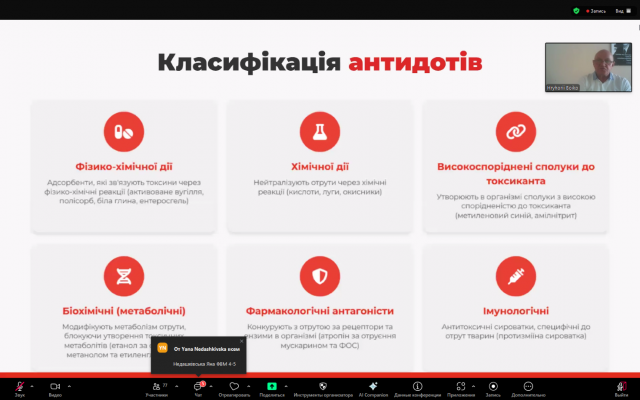
• Mechanisms of action at the cellular level, receptor interactions, and metabolic pathways;
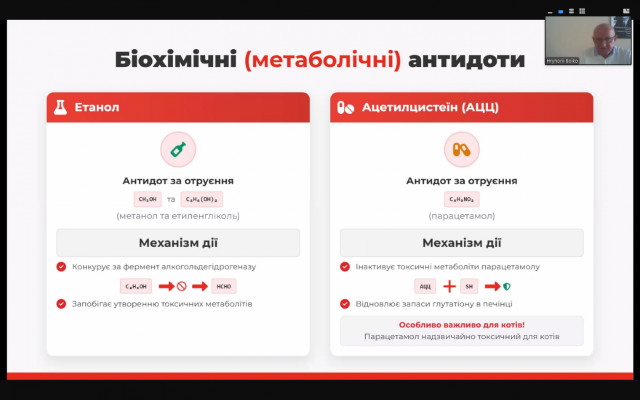
• Practical examples of clinical poisonings and treatment algorithms using specific antidotes: poisonings with rodenticides (anticoagulants, cholecalciferol), paracetamol, isoniazid, ethylene glycol, xylitol, chocolate, and others.
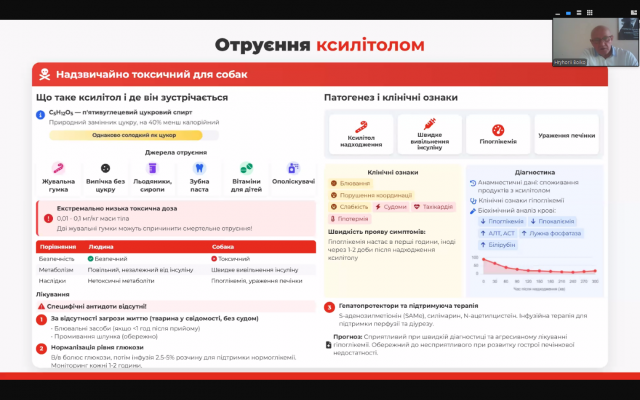
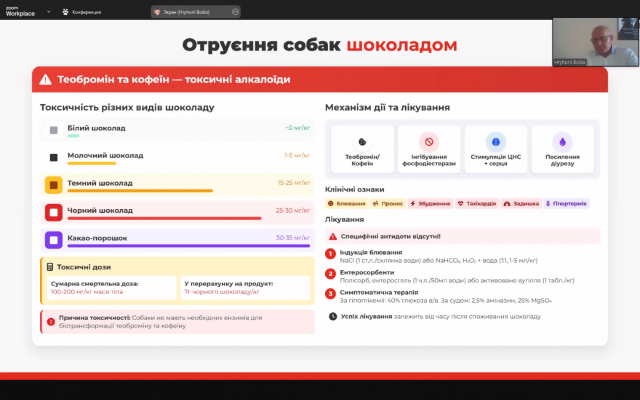
The participants had the opportunity to familiarize themselves with specific treatment schemes, recommended antidote dosages, diagnostic protocols, and supportive therapy guidelines. Special attention was given to the importance of early diagnosis and specific clinical signs of poisonings, which in small animals are often subtle or delayed.
The topic of the webinar gains even more significance when viewed in light of the international One Health initiative, which requires unified efforts from veterinary medicine, human medicine, biologists, pharmacists, toxicologists, and environmental scientists.
Poisonings in domestic animals can serve as indicators of environmental hazards or result from improper handling of medical or household chemicals. For example, uncontrolled use of rodenticides in urban areas or the intentional poisoning with isoniazid poses a threat not only to animals but also indirectly to humans (especially children who closely interact with pets) and other species within ecosystems.
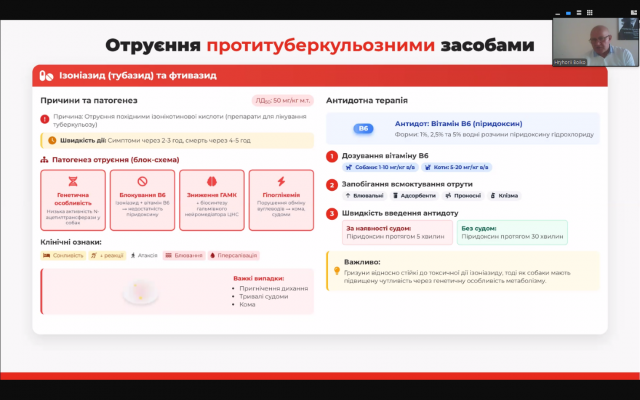
In this context, antidote therapy serves not only as a treatment method but also as a preventive element against socially significant risks: the spread and accumulation of toxicants in the environment, development of resistant microorganisms, which can ultimately affect the safety of animal-derived food products.
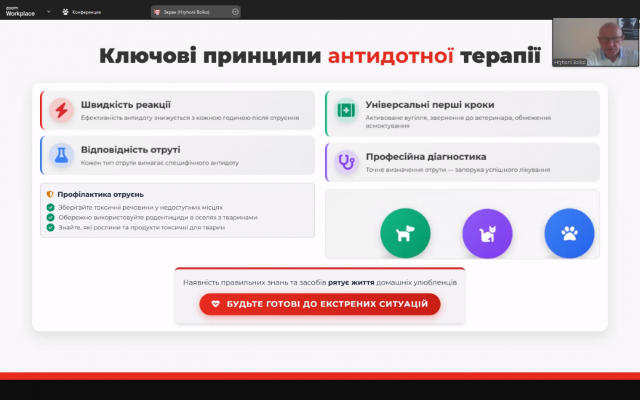
Prevention of poisonings, increasing awareness among veterinary professionals, understanding the mechanisms of toxin and antidote action — all these are key to saving animal lives, and sometimes human lives as well. Educational events like this webinar, involving experienced professionals, help to shape practically prepared veterinary doctors capable of acting precisely, scientifically, and in accordance with biosafety principles.
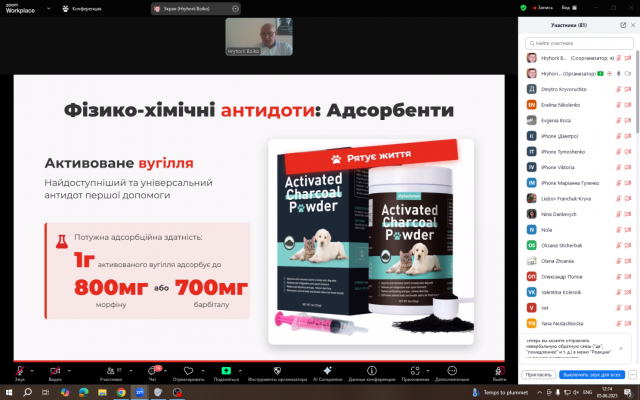
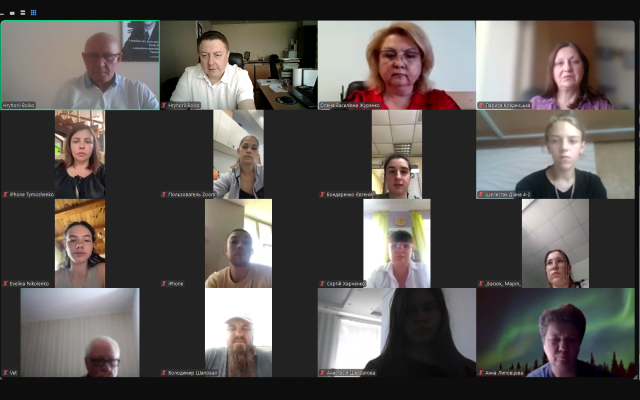
The participants noted the high level of organization, the comprehensiveness of the materials presented, and their direct practical relevance. The need was emphasized for:
• Improving veterinary emergency care protocols for poisonings;
• Expanding the list of registered antidotes in veterinary practice in Ukraine;
• More active integration of One Health principles into veterinary curricula.
The successful implementation of the One Health concept begins with specific clinical solutions — and antidote therapy is one such example, where veterinary intervention not only saves animals but strengthens the overall foundation of public health.
Hryhorii Boiko
Associate Professor of the Department of Vertebrate Physiology and Pharmacology



